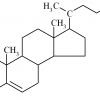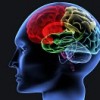Posts tagged ygyh

Bad Cholesterol
Apr 12th
When someone mentions cholesterol many will say, how is your HDL? Cholesterol travels through the blood attached to lipoproteins. From a health prospective we try to maintain the good cholesterol (High density lipoproteins or HDL) and decrease the bad cholesterol (Low density lipoproteins or LDL). The HDL aids the body in removal of bad cholesterol in the blood whereas LDL causes build up of plaque within arteries restricting blood flow and hardening of the arteries that may result in heart disease. Control of cholesterol levels is through a number of ways such as low cholesterol diets, weight loss and drugs.
Cholesterol More >

Trying to unlock a new door…..
Nov 28th
How is drug development moving along? Well, this is a very good question for we are still plagued by some elusive diseases, cancer for example. There have been many drugs developed targeting proteins involved in disease states some of which have proven to be quite effective. However today the steam engine for identifying drug targets to proteins involved in disease is becoming ever more difficult. Apparently over the past decade or so, the number of new drugs targeted toward disease has declined. This is primarily due to the fact that developing new medicine has become more difficult to do. It More >

The Medical Sleuth
Oct 31st
When we think of a detective the first thing that comes to mind is an investigator, either a member of a police agency or a private entity. However there are unique detectives within the multifaceted arena of medicine. All though we might already think of most doctors as detectives there are special doctors, units, working at the National Institute of Health’s (NIH) undiagnosed disease program. Doctors such as William A. Gahl at the NIH are disease detectives that try to elucidate the causes and genetic basis involved in the hundreds of unsolved and mysterious diseases that arise each year. Dr. Gahl More >

Will insulin come to the rescue of AD patients?
Sep 27th
Alzheimer disease (AD) is a neurodegenerative disease of the brain that is divided into early- and late-onset groups. AD is characterized by the build up of amyloid plaques, neurofibrillary tangles and the loss of connections between neurons. It is the most common type of dementia especially in the elderly. The exact causes of AD are elusive at the moment but are most likely the result of genetics and other factors. Scientist have been working hard to identify individual and or groups of genes responsible for the disease. Although the scientific community has identified may genes involved in early and late More >

Genetic Disorders Go B/Hollywood
Dec 1st
Remember Brad Pitt as Benjamin Button? Benjamin’s disorder, that had him being born looking like an 80-year-old man and “reverse aging” to pass away as a baby? Well, while I still am not aware of a real disorder that causes this kind of a phenomenon, there is a disorder that indeed makes people age much faster than normal: Hutchinson-Gilford Progeria Syndrome (Progeria for short), which is about to be depicted in a movie of its own.
Progeria is a very rare, genetic disorder that afflicts roughly one in 5 million people. It is caused by a mutation in the LaminA gene More >

How can I prolong health? Hmmm…..
Nov 6th
Having an edge on the stock market can allow one to make hundreds, thousands or even millions of dollars. But rarely do we think of having an edge on life. Since the sequencing of the human genome our understanding of human genes and their interaction has grown. Geneticists now have the capability to analyze genetic make-ups, and elucidate what genetic patterns will evolve into certain conditions or disease states.
Any individual has a unique genetic profile different from that of another person. Contained within these differences are unique genetic variations that may make a person more susceptible to diseases such as More >

Medicine or Poison? It’s in Your Genes, duh…
Sep 24th
As the ongoing deciphering of the human genome provides us with more and more insights about our predisposition for diseases and genetic disorders, (see Your Genes Your Health for examples) I am equally, if not more astounded by what it tells us about our ability to utilize medicines to counteract diseases.
Just recently, a group of researchers at the University of Maryland School of Medicine have identified a variant of a gene that is believed to play a major role in determining why people do not respond to a popular anti-clotting medication. This gene variant, carried by as many as a third More >
